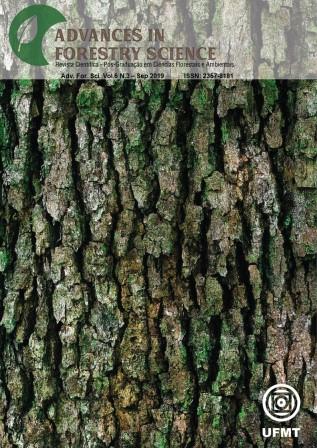Clonal selection of Corymbia for energy and charcoal production
DOI:
https://doi.org/10.34062/afs.v6i3.8293Keywords:
yield, principal component analysis, ligninAbstract
The genus Corymbia appears as an option to produce best quality charcoal. The selection of genotypes through multivariate analysis can be a solution when multiple variables influence the result. The aim of this study was to characterize eight genotypes of Corymbia citriodora x Corymbia torelliana for energy and charcoal production, group and indicate the genetic materials with highest potential. The woods specific gravity, high heating value and energy density was determined. Energy density was grouped by the Scott-Knott test; group 1 was appointed for energy generation. The wood was carbonized. Charcoal yield, density, fixed carbon, friability, higher heating value, ash content, fixed carbon yield and energy density were determined. Principal component analysis was performed. Principal component 3 was chosen, as the representation of the ideal genetic material. The scores were calculated, and genetic materials III, VI and VIII are selected for charcoal production. The selection has shown to be efficient.Downloads
Download data is not yet available.
Downloads
Published
2019-11-01
Issue
Section
Original Article
License
All copyright must be assigned to the Federal University of Mato Grosso.

